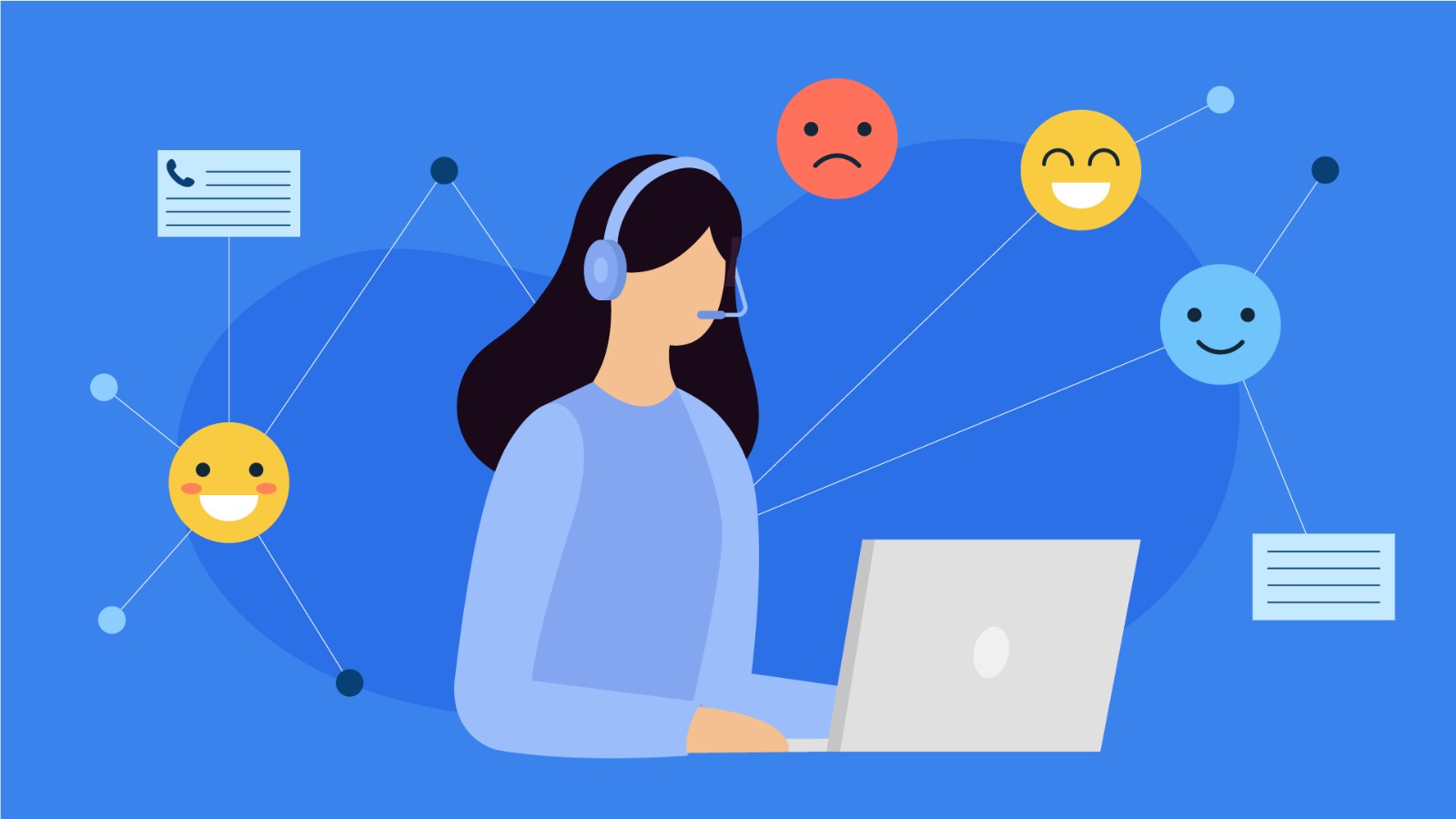Manual call center coaching typically involves a supervisor or manager working closely with a call center agent to help them improve their performance. The process usually involves several steps, including monitoring calls, providing feedback, and offering additional training or support.
One of the first steps in a traditional call center coaching is to monitor calls made by the agent.
This can be done by listening in on live calls or by reviewing recorded calls. During this process, the supervisor or manager listens carefully to the agent’s interactions with customers, paying attention to things like their tone of voice, the clarity of their communication, and their ability to handle difficult or complex situations.
The supervisor or manager will provide the agent feedback based on the observations made during call monitoring.
This feedback can take many forms.
- Pointing out areas where the agent did well.
- Offering suggestions for improvement.
- Development plan that outlines specific goals and actions that the agent can take.
- Additional training or support.
For example, an agent struggling with a particular aspect of their job may be given additional training or resources to help them improve. Alternatively, the supervisor or manager may offer to coach or mentor to help the agent build their skills and confidence.
However, over time, manual coaching has seen its own set of shortcomings. The immense amount of time and efforts go unnoticed only to witness agents quitting, performing poorly, and breaching compliance regulations.
The Disadvantages of Manual Call Center Coaching
The Inefficiencies and Higher Costs of Manual Call Center Coaching: A Closer Look
With the rising occurrence of agent attrition, manual call center coaching has proven to be both costly and ineffective. On average, the expense of recruiting a new agent amounts to $2500. As of 2022, call centers experienced an annual attrition rate of 26%.
Given these circumstances, it becomes crucial to focus on agent retention and expedited onboarding to maximize annual return on investment (ROI). Now, let’s delve deeper into the specific drawbacks associated with manual call center coaching. Here are a few key considerations to ponder:
- Inherent Time Constraints:
Manual coaching entails a significant investment of time, especially in larger call centers with numerous agents. This poses a challenge for supervisors and managers who have limited time and resources to dedicate to coaching.
- Inconsistent Outcomes:
Manual coaching can be subjective and reliant on the individual supervisor or manager, resulting in inconsistencies in coaching approaches and results. Agents may receive varying levels of coaching, even if their performance levels are similar.
- Limited Scalability:
As call center volumes expand, it becomes increasingly challenging for supervisors and managers to provide personalized coaching to each agent. This can lead to reduced frequency or less tailored coaching, which can have a negative impact on agent performance and overall customer satisfaction.
- Lack of Real-time Feedback:
Manual coaching may not always offer real-time feedback or data analysis, making it difficult for supervisors and managers to provide effective coaching and achieve improvements.
- Stressful Procedure:
Providing constructive feedback and coaching can be emotionally demanding, particularly when agents encounter challenging or complex customer interactions. This can contribute to agent and supervisor burnout and high turnover rates, negatively affecting the entire call center.
Enhancing Call Center Coaching through Automation
Automation technologies offer numerous avenues to address the obstacles linked to manual coaching and deliver consistent, efficient, and personalized coaching experiences for agents. Let’s explore the essential ways in which automation can enhance call center coaching:
- Enhanced Efficiency and Scalability
Automation technologies offer the potential to optimize and expand the coaching process, resulting in increased efficiency and scalability.
By leveraging AI-powered coaching tools, supervisors and managers can automate monitoring and analysis of agent interactions, enabling them to allocate their time and resources more effectively towards coaching agents who require the most assistance.
- Ensured Consistency in Coaching Approaches and Outcomes
Automation technologies can ensure consistent coaching methods and outcomes across agents and supervisors.
With AI-powered coaching tools, standardized coaching methods and feedback can be provided, guaranteeing that agents receive consistent coaching irrespective of their supervisor or manager.
- Intuitive Feedback and Data Analysis
Automation technologies provide supervisors and managers with intuitive insights into agent performance and customer interactions. AI-powered coaching tools, for instance, can deliver real-time feedback and suggestions to agents during customer interactions, aiding in the improvement of their performance, and refining scripts for better outcomes.
- Personalized Coaching Experience
Automation technologies facilitate personalized coaching experiences tailored to individual agent performance and needs. Through AI-powered coaching tools, agent interactions can be analyzed, leading to customized coaching recommendations based on their strengths and areas requiring improvement.
In Conclusion
Businesses have made significant strides in enhancing agent performance and customer satisfaction, and automation has emerged as a key enabler in achieving these goals. Let’s summarize the ways in which automation is revolutionizing call center coaching:
- Enhanced Efficiency and Scalability: Automation enables the optimization of coaching processes, conserving time and effort while accommodating growth and scalability.
- Consistency in Coaching Approaches and Outcomes: Automation ensures uniformity in coaching methods and outcomes, leading to improved agent performance across the board.
- Intuitive Feedback and Data Analysis: Automation provides insightful feedback and data analysis, empowering both supervisors and agents to identify what works and what doesn’t.
- Personalized Coaching Experience without Compromising Quality: Automation delivers a personalized coaching experience tailored to individual agent needs, maintaining the quality of coaching while leveraging the benefits of automation.
By embracing automation, businesses can unlock the full potential of call center coaching, elevating agent performance and enhancing overall customer satisfaction.

Leave a Reply